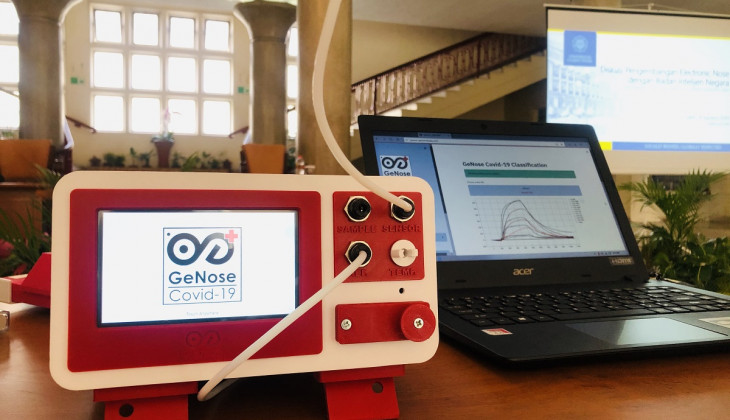Public health experts in Indonesia are raising concerns after the government announced that it will allow the use of GeNose COVID-19 detectors to fulfill test requirements for air travelers across the country starting tomorrow.
In a new circular issued last week, Indonesia’s COVID-19 task force said that all air travelers can now present negative COVID-19 result from either a PCR test, antigen rapid test, or a GeNose COVID-19 test, the latter of which can be done at the airport.
Related — Travelers can take GeNose COVID-19 test to enter Bali starting in April
The new regulation is set to go into force tomorrow and apply nationally, but only four airports across the country are reportedly ready to facilitate the GeNose test service for the time being, namely Yogyakarta International Airport, Surabaya’s Juanda International Airport, Bandung’s Husein Sastranegara International Airport, and Palembang’s Sultan Mahmud Badaruddin II International Aiport. Other major airports are expected to follow soon.
However, several public health experts are urging officials to review the policy.
Pandu Riono, an epidemiologist from University of Indonesia (UI), said that GeNose is considered experimental and therefore should not be used so widely.
“[The policy] must be reviewed, especially when the task force applies this as if the level of accuracy is on par [with PCR and antigen rapid test], that is an inaccurate perspective and people will definitely opt for the easiest method,” Pandu said.
“This is reckless. Using inaccurate methods of screening equals allowing continued infection, [especially] when a malignant variant is already transmitting locally,” he added, alluding to the more contagious B117 strain of the SARS-CoV-2 virus.
A similar criticism came from Ahmad Utomo, an expert in molecular biology, who pointed to the fact that there are no scientific publications on GeNose up to this point.
“Until now there are no scientific publications on GeNose, I do not know details of the study or its results that have been used as a basis for its distribution permit from the Health Ministry,” Ahmad said.
GeNose was developed by Yogyakarta’s Gadjah Mada University (UGM) and was approved for distribution by the Health Ministry late last year, after months of development. With the help of artificial intelligence, the device is said to be capable of detecting possible coronavirus infection through human breath.
A single GeNose test currently costs IDR30K (US$2.08), compared to around IDR250K (US$17.32) for an antigen rapid test or IDR900K (US$62.35) for a PCR test.





Reader Interactions